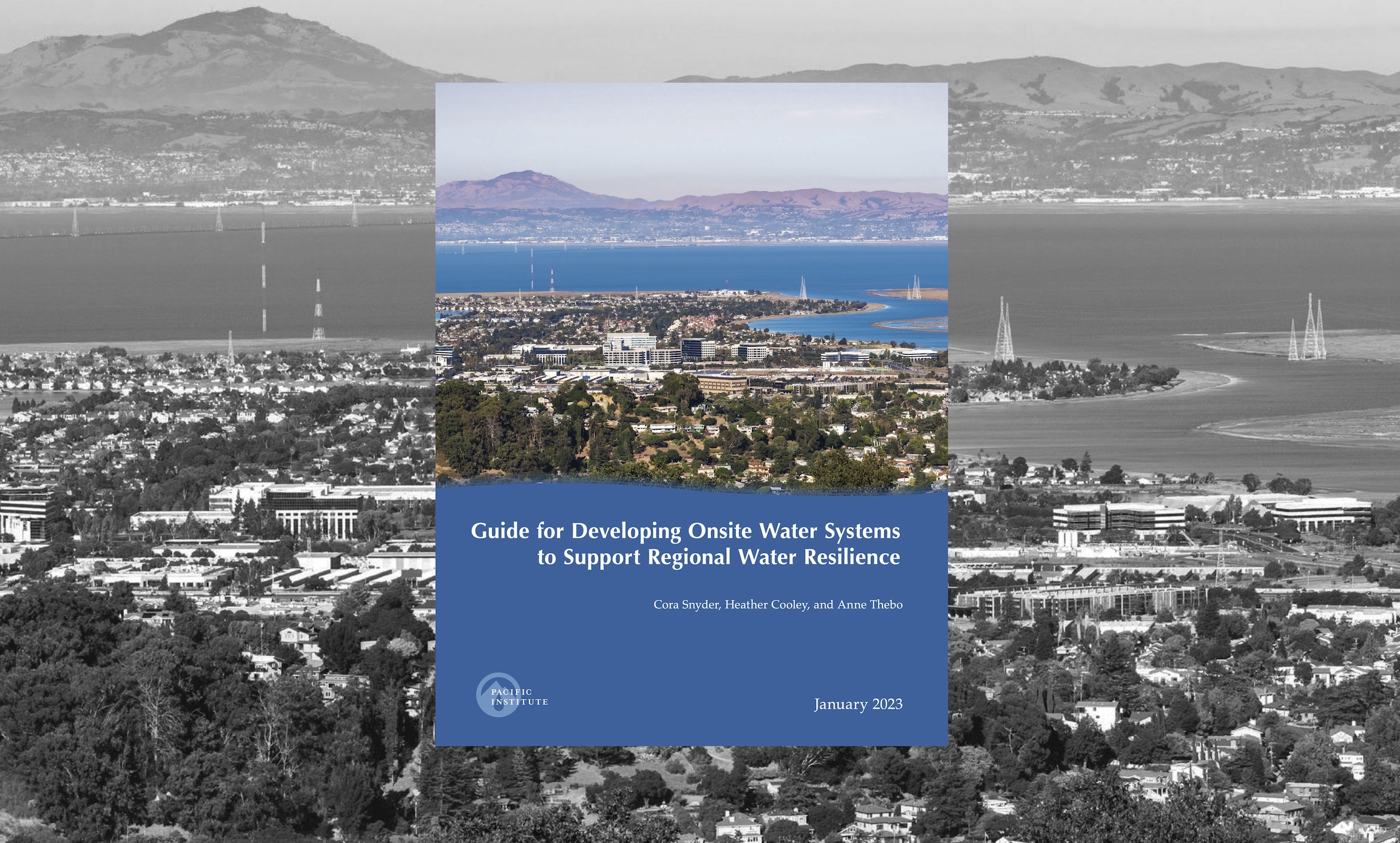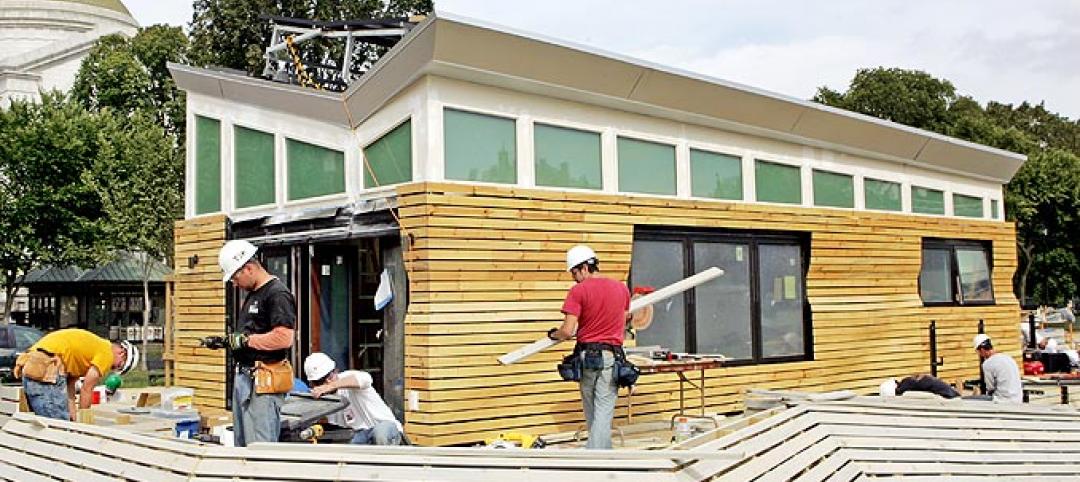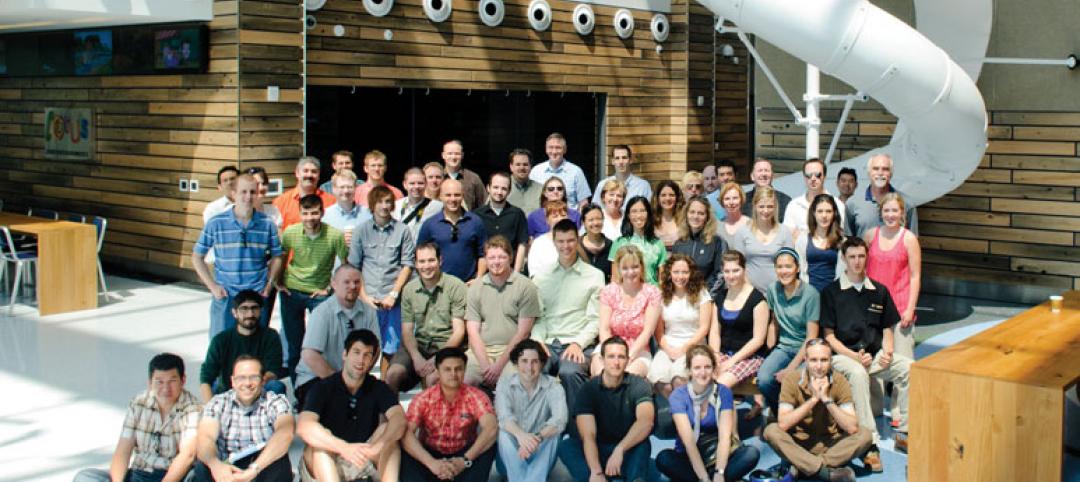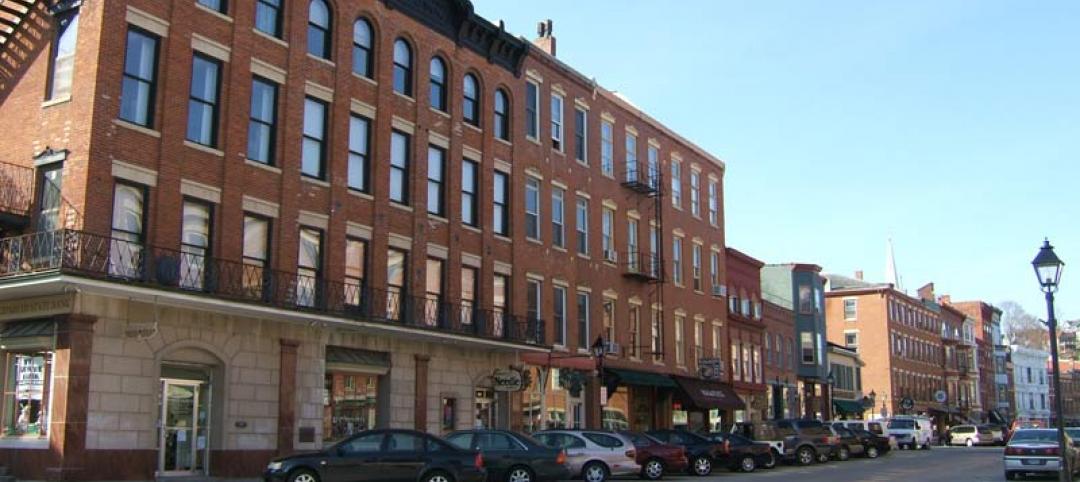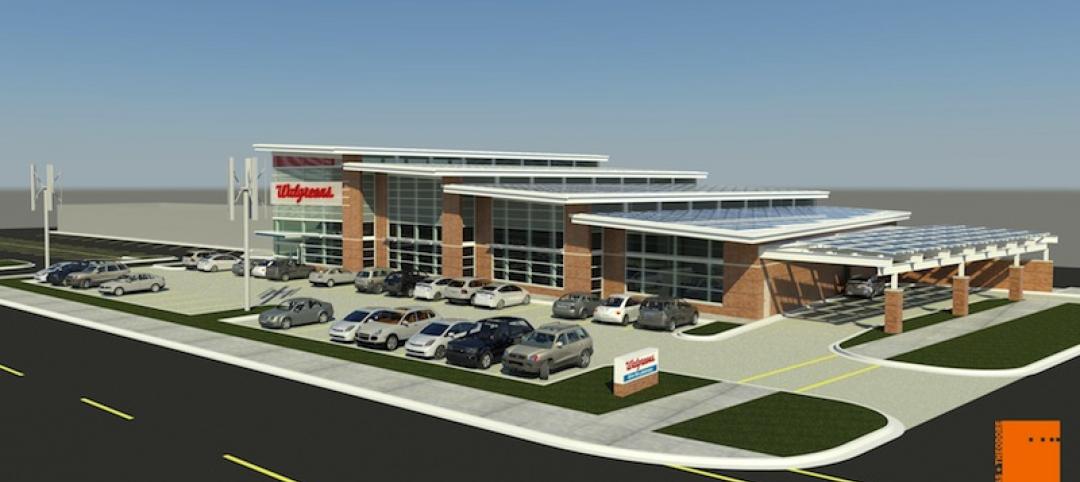The Pacific Institute, a global nonpartisan water think tank, has released guidance for developers to plan, design, and operate onsite water reuse systems.
The Guide for Developing Onsite Water Systems to Support Regional Water Resilience “advances circular, localized approaches to managing water that reduce a site’s water footprint, improve its resilience to water shortage or other disruptions, and provide benefits for local communities and regional water systems,” according to a news release. Onsite water systems collect and treat water from onsite sources, including wastewater, rainwater, and stormwater, and reuse it for non-potable water uses like toilet flushing, outdoor irrigation, and cooling, which can account for over 75% of a site’s water demand.
The new guide helps site developers envision and evaluate how an onsite system can use a multi-benefit approach to build water resilience, support equity, improve environmental health, and protect public health. Each section includes sample questions to consider, ways for stakeholders to engage, highlights resources to examine, and offers recommended analyses. The guide also provides a range of case studies illustrating best practices and lessons learned.
“Onsite water systems are gaining traction across the U.S. and the world as a water resilience strategy,” said Heather Cooley, director of research at the Pacific Institute. “This circular approach can provide multiple benefits for the building, water systems, and the larger community. In addition to diversifying water supplies, they can reduce pollution from stormwater, create green space, and provide added flexibility and redundancy to centralized water systems.”
Related Stories
| Mar 22, 2013
Earn $500 as a DOE proposal reviewer
The DOE'S Building Technologies Office this morning put out a call to the AEC industry for expert reviewers for its new energy-efficiency initiative for small commercial buildings, which make up more than 90% of the commercial building stock.
| Mar 21, 2013
Best Firms to Work For: Enermodal Engineering is green to the core
At Enermodal Engineering, there’s only one kind of building—a sustainable one.
| Mar 19, 2013
New LEED for Neighborhood Development and Historic Preservation guide released
A new guidance manual, LEED for Neighborhood Development and Historic Preservation, outlines strategies geared towards helping building teams incorporate historic resources into their developments.
| Mar 14, 2013
25 cities with the most Energy Star certified buildings
Los Angeles, Washington, D.C., and Chicago top EPA's list of the U.S. cities with the greatest number of Energy Star certified buildings in 2012.
| Mar 10, 2013
Walgreens to build first net-zero energy retail store
Walgreens announced plans last week to build one of the nation's first net-zero retail stores. The Evanston, Ill., location will utilize solar panels, wind turbines, geothermal technology, LED lighting and ultra-high-efficiency refrigeration to produce energy equal to or greater than the building consumes.
| Feb 28, 2013
Greeening Silicon Valley: Samsung's new 1.1 million-sf HQ
Samsung Electronics' new 1.1 million sf San Jose campus will support at least 2,500 sales and R&D staff in the company's semiconductor and display businesses.
| Feb 25, 2013
HOK sustainability expert Mary Ann Lazarus tapped by AIA for strategy consulting position
Mary Ann Lazarus, FAIA, LEED® AP BD+C, has accepted a two-year consulting position with the American Institute of Architects in Washington, DC. Her new position, which begins March 1, will focus on increasing the AIA's impact on sustainability across the profession. The St. Louis-based architect will continue consulting at HOK.
| Feb 22, 2013
Defense department report: Green design saves taxpayers money
An independent report on energy efficiency and sustainability standards used by the Pentagon for military construction affirms the value of LEED-certified high performing buildings to America’s military and U.S. taxpayers.
| Jan 25, 2013
Caution on UCLA study of worker productivity at 'green companies'
A new report from researchers at UCLA and France's University Paris–Dauphine claims that workers at environmentally conscious companies are more productive than their counterparts at nongreen companies.
| Jan 23, 2013
USGBC Releases 2012 List of Top 10 States for LEED
The per-capita list is based on 2010 U.S. Census data and includes commercial and institutional buildings certified under LEED.


